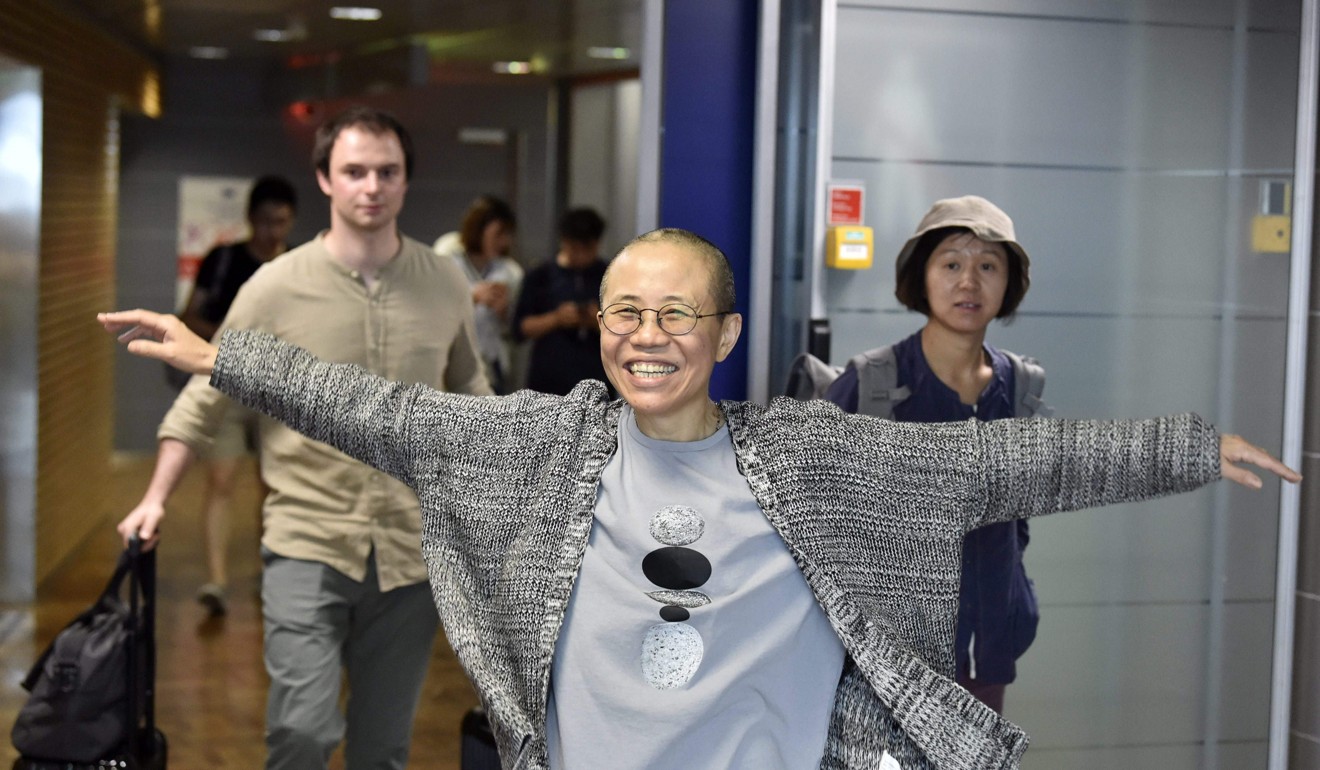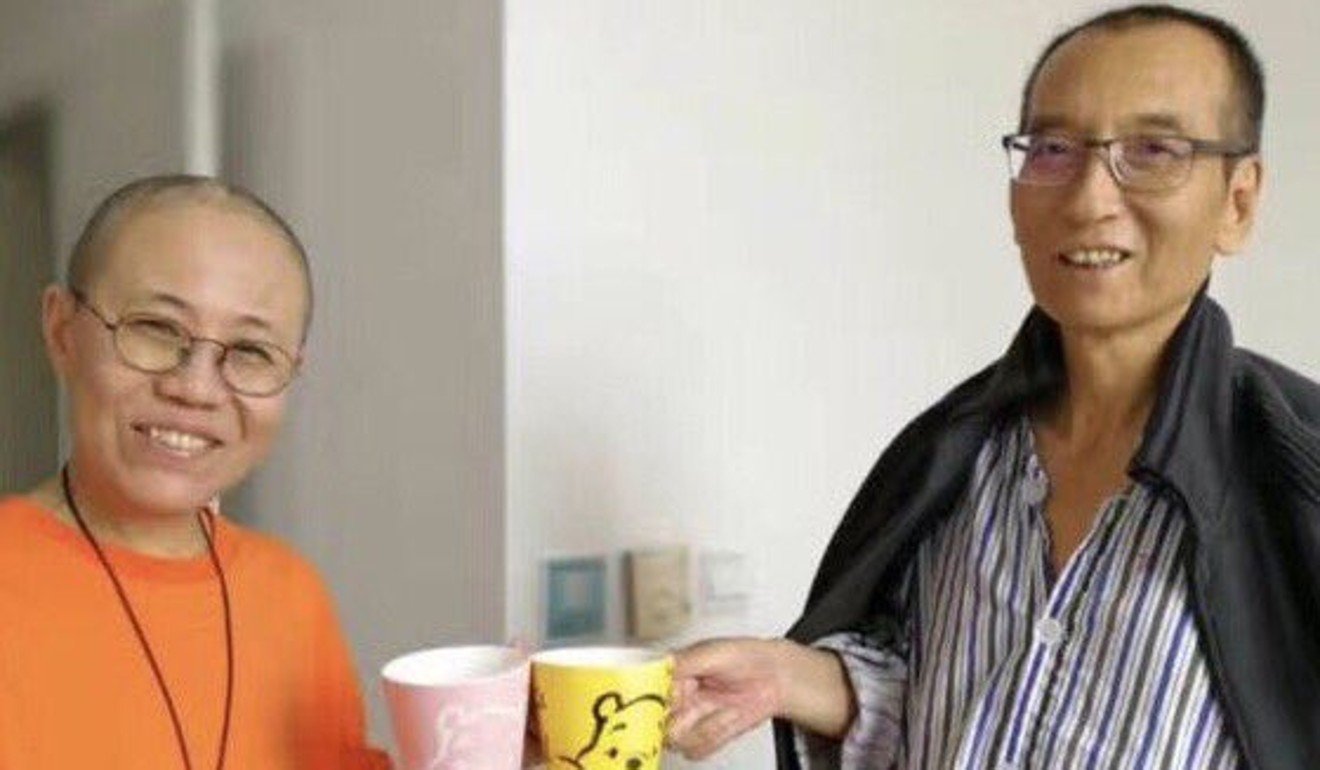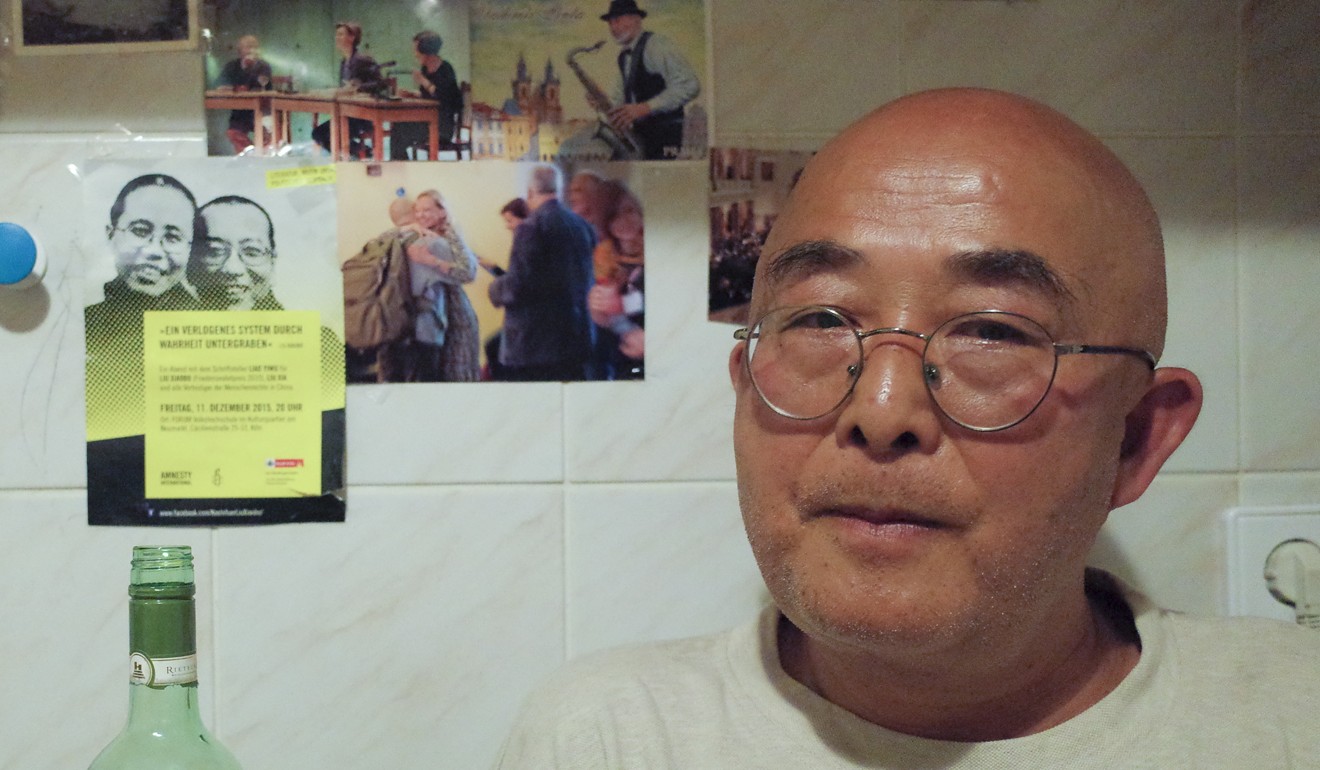
Tasting freedom: Liu Xia regains her health as she settles into new life in Germany
The artist and widow of Nobel laureate Liu Xiaobo is supported by friends and allies who fought for her release
The health of Liu Xia, the 57-year-old artist and widow of Nobel Peace Prize laureate Liu Xiaobo, has significantly improved nearly a month after she arrived in Germany following her release from almost eight years of house arrest in China.
“The strength of her medicines has been reduced. She can now handle walking up to 3km a day – this was virtually impossible last month,” said her younger brother, Liu Hui, who is not allowed to leave China after he was sentenced to 11 years’ jail for fraud in 2013 and later released on parole.
Liu Hui said his sister was still undergoing detailed physical examinations but that her emotional and physical health had improved since arriving in Berlin on July 10.
“She is liking the weather, but it still takes time for her to adjust to the German diet,” he said. “But overall, her life has stabilised.”

Liu Xia has deliberately stayed out of the media spotlight since she arrived in Berlin, initially because of her health but also out of concern for her brother in China. After moving to a flat near friends, her daily routine now revolves around reading books, meeting friends and exercising.
“I do plan on visiting her, but I will still have to fight for it in the time to come,” said Liu Hui, who can travel only within China.
Settling in Germany was Liu Xia’s preference, but the move was the result of tireless German diplomatic efforts and a strong support network led by the exiled Chinese writer Liao Yiwu, a close friend of Liu Xiaobo and Liu Xia who is based in Berlin.
Liu Xia was allowed to leave China three days before the first anniversary of her husband’s death in custody from liver cancer.

Over the years, Germany and the United States – both their governments and individuals – have led the fight for the couple’s freedom. These close diplomatic efforts were believed to have lasted until May, when Berlin took up the last leg of the journey at a pivotal moment.
Soon after she arrived in the German capital, Liu Xia told her brother, “Maybe heaven is what Berlin looks like”.
“I think she went to Germany mainly because of the sincere invitation made by Germany,” he said.
Eva Pils, a China human rights activist and legal scholar at King’s College London, recalled a chat about eight years ago when Liu Xia told her she would be happy to spend time in Germany.
“I think that Berlin – Germany, Europe – is a very personal choice of destination for her as an artist and writer,” Pils said.
Joy for Liu Xia, widow of Liu Xiaobo, as she arrives in Germany
She felt Liu Xia was interested in Berlin as a city “that remembers Germany’s history, including its darkest eras, in its museums, art and public spaces” as well as the diverse history, art and culture that is offered in Europe.
The city is well-known for preserving its history, including the Berlin Wall, symbolising an era when freedom was lacking, the city was physically divided and its eastern side – and the former East Germany – was ruled by communists.

From the late astrophysicist Fang Lizhi – who was among the “black hands” blamed for instigating the 1989 Tiananmen Square protests – to blind legal activist Chen Guangcheng, many Chinese dissidents and rights defenders have chosen the United States as a destination, though others have sought alternatives.
Liu Xia travelled there two decades ago. “She spent a month in the United States during the ’90s but she didn’t have a good time there,” her brother said.
Germany has become an increasingly popular destination for Chinese dissidents partly because of how the nation prioritises human rights while sharing a history of struggle under a communist regime. This is especially so since Angela Merkel was elected chancellor in 2005; she grew up under the East German dictatorship and remains a vocal human rights advocate.
“She fully understands what is going on and she would like to make a difference … When she first become chancellor, she did very unexpected things like meeting the Dalai Lama officially,” said Katrin Kinzelbach, associate director of the Berlin-based Global Public Policy Institute.
Liu Xia, detained dissident’s widow, ‘ready to die at home in protest’
Over the years, Merkel has made it a mission to visit dissidents and their family members during her state visits to China. In May, she met the wives of detained human rights lawyers Li Wenzu and Xu Yan and also personally raised the issue of Liu Xia with President Xi Jinping, which was later seen as a pivotal move that led to Liu’s release.
Wolf Biermann, a German poet and dissident, said Merkel did not take democracy for granted, unlike some other western European politicians.
“When you have lived in a dictatorship, you have a very different sensibility to this problem. I think it’s good that we have a chancellor that grew up in the east,” said Biermann, who delivered letters from Liao about Liu Xia’s plight to Merkel.
Today, Germany is home to a number of influential Chinese intellectuals, including Liao, journalist Chang Ping and artist Ai Weiwei. Liu’s arrival after years of effort helped further the nation’s reputation as an international human rights leader.

According to Liao, Liu Xia told him that Michael Clauss, the German ambassador to China, had made a deal with her while she was still under house arrest in her Beijing flat, that he would one day play badminton with her in Berlin.
“Ambassador Clauss is very much personally invested in” her situation, said Kinzelbach, adding that his style made a difference in the embassy’s handling of her case.
Veteran activist Hu Jia said the sincerity displayed by German politicians before Liu Xiaobo’s death had moved Liu Xia a great deal, with Clauss and former president Joachim Gauck often sending bilingual, handwritten Christmas cards.
“The level of care they displayed to the spouse of a political prisoner was exceptional; no other countries were doing that,” Hu said.
‘Chaos and disbelief’: Liu Xia’s last hours in China before flight to freedom
Despite a lack of public exposure since she arrived last month, Liu is a well-known figure in Germany, especially among politicians and intellectuals.
“Her case has so much resonance because of people like Liao Yiwu, who told her stories repeatedly, and her story is so outrageously illegal. It was plainly obvious to everyone that this is political repression, not a legitimate detention,” Kinzelbach said.
Maintaining the public pressure was a coalition of influential intellectuals, including Liao, Biermann, Independent Chinese PEN Centre president Tienchi Martin-Liao, Nobel literature laureate Herta Mueller and publisher Peter Sillem, who lobbied, marshalled resources, mounted protests and circulated petitions to keep Liu’s plight in the public eye.
Now, as Liu settles into her new life, she waits for artistic inspiration to strike.
“She is not creating art yet, but once she is hit by inspiration, she will work tirelessly around the clock until it’s done,” her brother said.

